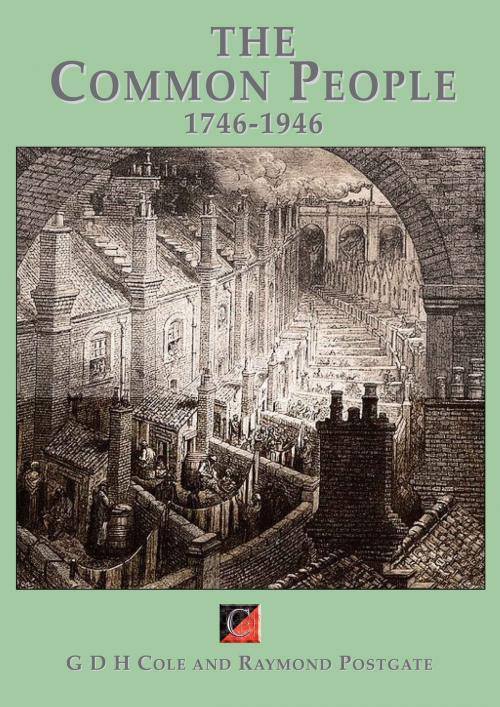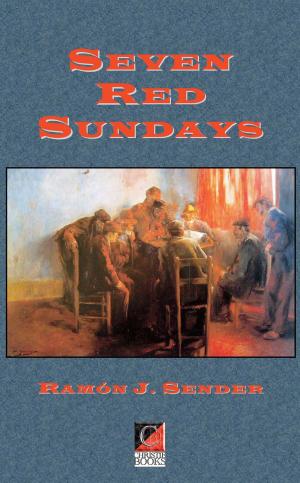| Author: | G.D.H. Cole, Raymond Postgate | ISBN: | 1230001626049 |
| Publisher: | ChristieBooks | Publication: | April 5, 2017 |
| Imprint: | ChristieBooks | Language: | English |
| Author: | G.D.H. Cole, Raymond Postgate |
| ISBN: | 1230001626049 |
| Publisher: | ChristieBooks |
| Publication: | April 5, 2017 |
| Imprint: | ChristieBooks |
| Language: | English |
First published in 1938 and updated and rewritten in 1946, G D H Cole and Raymond Postgate’s ‘The Common People. 1746-1946’ is a classic study of British working class history from the defeat of the Jacobite cause at Culloden in 1746 through to the end of WWII in 1946. Its 714 pages provide a comprehensive overview of British working class life from a libertarian socialist perspective from the end of the Jacobite rebellion to 1946: eighteenth century social and political movements; the Industrial Revolution and the French War; the post-Napoleonic Peace (including Peterloo and the rise of the trade union movement); England under the Reform Act; working class life during the so-called ‘Great Victorian Age’; Imperialism and Socialism; everyday life in the run-up to the First World War; the First World War itself; the inter-war period; Britain in 1939; the Second World War; plus a list of recommended books and a useful chronology of important dates
“In their book 'The Common People' G.D.H. Cole and Raymond Postgate write about 1819 as 'the year when it was decided to restore the gold standard and thus to make permanent the deflation of the previous period, but also as the year of the Peterloo Massacre and of the Six Acts'. It was a time, according to Cole and Postgate, of wage reductions and, 'at the height of this movement (of industrial struggle), the first recorded attempt was made to bring all workers together into a “General Union of Trades,” sometimes called by the name of the “Philanthropic Hercules”.'
“The point about the Government imposed 'Six Acts' of 1819, which followed Peterloo, was that it was an attack on freedom of the press, which Cole and Postgate write 'far outdid in severity either Sidmouth's Gagging Acts of 1817 or Pitt's measures of the 1790s.' Magistrates were given more powers for 'summary conviction of political offenders' and 'penalties against blasphemous and seditious publications were greatly stiffened up; and the entire Radical Press was threatened with suppression by the extension of the heavy tax on newspapers to periodical publications of every sort' this last measure was aimed at Cobbett's cheap Register, Carlile's Republican and Wooler's Black Dwarf, which had previously been outside the scope of the tax. The 'blasphemous and seditious' ruling was targeting Radical literature generally such as Paine's Rights of Man and Age of Reason.
“With all this in mind it would seem that Peterloo and its consequences, had as much to do with the free press and the right to assembly as with widening the franchise and delivering the vote to folk: 'From 1819 onwards the “unstamped” Press played an important part in the Radical movement (and) editors, printers and publishers, and hundreds of those who sold it, were sent to prison again and again' (Cole & Postgate). Even in the 19th Century, the novelist George Elliot in her book 'Felix Holt Radical', was warning us of the 'folly' of 'vain expectations' with regard to anticipating much from the vote. And, the novelist and social reformer Charles Dickens in 1868, according to his biographer Peter Ackroyd; 'cannot be said to have any great faith or hope in representative government even on the newly reformed model'.” — Brian Bamford.
First published in 1938 and updated and rewritten in 1946, G D H Cole and Raymond Postgate’s ‘The Common People. 1746-1946’ is a classic study of British working class history from the defeat of the Jacobite cause at Culloden in 1746 through to the end of WWII in 1946. Its 714 pages provide a comprehensive overview of British working class life from a libertarian socialist perspective from the end of the Jacobite rebellion to 1946: eighteenth century social and political movements; the Industrial Revolution and the French War; the post-Napoleonic Peace (including Peterloo and the rise of the trade union movement); England under the Reform Act; working class life during the so-called ‘Great Victorian Age’; Imperialism and Socialism; everyday life in the run-up to the First World War; the First World War itself; the inter-war period; Britain in 1939; the Second World War; plus a list of recommended books and a useful chronology of important dates
“In their book 'The Common People' G.D.H. Cole and Raymond Postgate write about 1819 as 'the year when it was decided to restore the gold standard and thus to make permanent the deflation of the previous period, but also as the year of the Peterloo Massacre and of the Six Acts'. It was a time, according to Cole and Postgate, of wage reductions and, 'at the height of this movement (of industrial struggle), the first recorded attempt was made to bring all workers together into a “General Union of Trades,” sometimes called by the name of the “Philanthropic Hercules”.'
“The point about the Government imposed 'Six Acts' of 1819, which followed Peterloo, was that it was an attack on freedom of the press, which Cole and Postgate write 'far outdid in severity either Sidmouth's Gagging Acts of 1817 or Pitt's measures of the 1790s.' Magistrates were given more powers for 'summary conviction of political offenders' and 'penalties against blasphemous and seditious publications were greatly stiffened up; and the entire Radical Press was threatened with suppression by the extension of the heavy tax on newspapers to periodical publications of every sort' this last measure was aimed at Cobbett's cheap Register, Carlile's Republican and Wooler's Black Dwarf, which had previously been outside the scope of the tax. The 'blasphemous and seditious' ruling was targeting Radical literature generally such as Paine's Rights of Man and Age of Reason.
“With all this in mind it would seem that Peterloo and its consequences, had as much to do with the free press and the right to assembly as with widening the franchise and delivering the vote to folk: 'From 1819 onwards the “unstamped” Press played an important part in the Radical movement (and) editors, printers and publishers, and hundreds of those who sold it, were sent to prison again and again' (Cole & Postgate). Even in the 19th Century, the novelist George Elliot in her book 'Felix Holt Radical', was warning us of the 'folly' of 'vain expectations' with regard to anticipating much from the vote. And, the novelist and social reformer Charles Dickens in 1868, according to his biographer Peter Ackroyd; 'cannot be said to have any great faith or hope in representative government even on the newly reformed model'.” — Brian Bamford.















